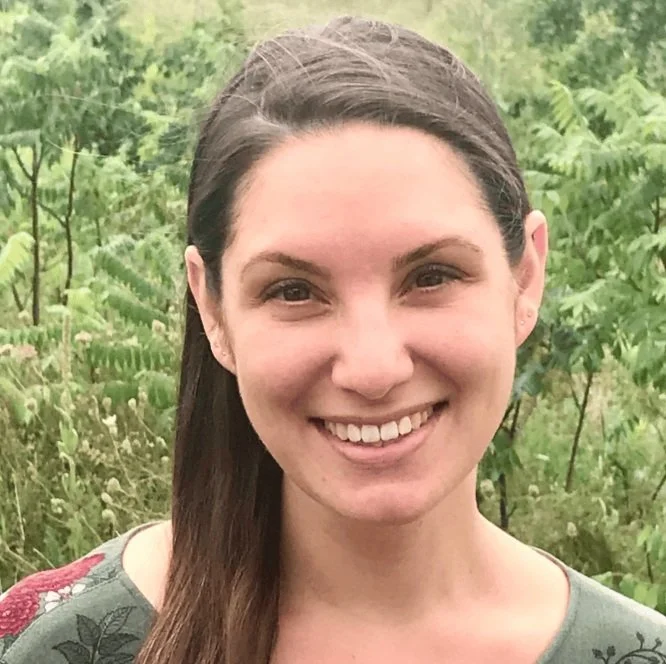
Trauma Therapist in Kanata, Ontario
We help those living with Trauma in Kanata who feel overwhelmed by anxiety, flashbacks, and isolation so they can find peace, rebuild their lives, and reconnect with their loved ones.
Our Trauma Therapists Are Ready When You Are
I know living with trauma is incredibly hard. What you've experienced (or are still experiencing) is real and deeply painful. We know a lot of people are feeling misunderstood and alone, wondering if a pain like this can ever be overcome. This pain can affect every part of your life, making it hard to sleep, connect with loved ones, and find joy in daily activities. Flashbacks, anxiety, and nightmares can make it seem like there's no way out. As trauma therapists serving Kanata, we exist to give you hope.
In our sessions, we'll focus on three main areas.
First, we'll work on understanding your trauma, giving you a safe space to talk about your feelings without judgment.
Second, we'll help you learn practical tools to manage your symptoms, so everyday life becomes easier.
Finally, we'll work on building a meaningful future. We'll set new goals, develop healthy relationships, and help you step in the direction of creating your fulfilling life.

What is Trauma? (Source: PsychHub)
What Is Trauma? Signs and Symptoms
Frequently feeling nervous
Physical symptoms like stomach upset
Upsetting thoughts
Hyper-vigilance
(constantly feeling on edge and on alert for threats)Symptoms worsening with thoughts of your traumatic event
Avoiding anything that reminds you of the event
Symptoms triggered without any external reason
We Offer Virtual Therapy for Trauma In Kanata
Thriving city life can be a double-edged sword. Kanata's booming tech scene offers exciting opportunities, but the fast pace and focus on achievement can be overwhelming, especially for those recovering from trauma or PTSD. Constant deadlines, a competitive atmosphere, and potential isolation can all contribute to anxiety and flashbacks.
If Kanata's energy feels draining instead of energizing, you're not alone. We understand the unique challenges trauma survivors face in fast-paced environments. Let's work together to develop coping mechanisms and connect you with a supportive network to help you feel grounded and empowered.
The American Psychological Association (APA) suggests four types of therapy for unhealed trauma or PTSD. We provide all four of these therapies:
What Types of Therapy are Best for Trauma and PTSD?
Cognitive Behavioural Therapy (CBT)
Cognitive Processing Therapy (CPT)
Prolonged Exposure (PE)
Eye movement Desensitization and Reprocessing (EMDR)
How Does This Help Me?
Cognitive Behavioural Therapy (CBT):
CBT helps you see how your thoughts and feelings impact your actions. By changing negative patterns, you can improve your mood and handle stress better.Cognitive Processing Therapy (CPT):
CPT helps you deal with trauma by changing how you think about it. You'll learn to challenge and change negative beliefs, making it easier to move forward.Prolonged Exposure (PE):
PE involves facing your trauma memories and fears in a safe way until they no longer feel overwhelming. Over time, this helps reduce your anxiety and avoidance.Eye Movement Desensitization and Reprocessing (EMDR):
EMDR uses eye movements to help your brain process and heal from traumatic memories.
Compassionate Complex Trauma Support in Kanata
Feeling overwhelmed by trauma or PTSD? You deserve a safe space to heal. We provide a supportive environment where you can openly share your experiences without judgment. Our reliable therapists will build trust with you through consistent, compassionate care.
We don't just listen – we empower you. We'll equip you with practical tools to manage symptoms and guide you towards healthy self-care. If you need additional support, we'll help you find the perfect resources. Healing is a journey, and we'll be your steady guide as you work towards a brighter future.
Find out more about CPT vs PE: Which Therapy is Right for You? and EMDR vs CBT therapy.

“Trauma is not what happens to us, but what we hold inside in the absence of an empathetic witness.”
Book Your Free Consultation Today and Take The First Step To Healing
Meet our Clinical Directors
Celissa Vipond (MSW) and Melissa Lindstrom (BSW) are registered social workers (RSW) who started Virtual CBT Psychotherapy in 2021.
They serve Kanata, as well as all of Ontario, and will meet with you for you virtually for a free consultation and discuss if our clinic suits you. Both Celissa and Melissa specialize in treating individuals with a history of trauma or PTSD.
Click the button below to begin your trauma-healing journey today.
Why Choose Virtual CBT Psychotherapy?
Expert Online Trauma Therapy in Kanata
We have many trauma specialists to choose from! We will match you based on your symptoms and preferences.
Learn more about our social workers, registered psychotherapists and clinical psychologists.
We Are Experienced Trauma Therapists
Virtual trauma counselling is as effective as in-person. That's why we provide personalized counseling services you can access from the comfort of your home.
Your Experience Will be Safe
Our therapists are trained trauma experts. We offer treatments that can help you feel better in as few as 8-10 sessions. Some people see results even sooner, while others may need a few more sessions.
We Can Find the Right Trauma Therapist for You
Our psychotherapists are passionate about what they do. They will provide a safe space while also challenging you to recover from your past trauma. They will teach you coping strategies and help you heal from the inside out.

Meet our Trauma Therapists Service Kanata
-

Celissa Vipond
RSW Psychotherapist
-

Melissa Lindstrom
RSW Psychotherapist
-

Alpar Szotyori
Psychotherapist
-

Emily MacQuarrie
Doctoral Student
-

Lauren Steinhart
Clinical Psychologist
-

Jessie Daniel
RSW Psychotherapist
-

Shahram Kavehsemnani
RN Psychotherapist
-

Catherine Sullivan
RSW Psychotherapist
-

Angela Hammond
RSW Psychotherapist
-

Jennifer O'Connor
Jennifer O’Connor
Psychotherapist
-

Chris Conboy
Registered Psychotherapist
Examples of Traumatic Events That Can Cause Harm to Your Mental Health
A lot of people feel like their trauma "wasn't bad enough."
But many different experiences can cause deep trauma and PTSD, including:
Military Combat: Experiences during war or armed conflict.
Sexual Assault: Rape or other forms of sexual violence.
Physical Assault: Beatings, muggings, or other violent attacks.
Childhood Abuse: Physical, emotional, or sexual abuse during childhood.
Serious Accidents: Car crashes, industrial accidents, or other severe injuries.
Natural Disasters: Earthquakes, hurricanes, floods, or wildfires.
Terrorist Attacks: Being a victim of or witnessing acts of terrorism.
Sudden Death of a Loved One: Experiencing the unexpected loss of someone close.
Medical Trauma: Life-threatening illnesses or invasive medical procedures.
There are many more situations that can cause someone to feel the deep, emotional hurt of truama. If any of these feels like you, it’s important to reach out.
You may also want to read Who Can Develop PTSD? and Childhood Trauma
High-Risk Professions Can Lead to Trauma
Not all jobs are created equal when it comes to emotional well-being. Some professions, like firefighters, police officers, and emergency medical personnel, regularly face dangerous situations and witness traumatic events.
This constant exposure to violence, loss, and suffering can take a toll, increasing the risk of developing post-traumatic stress disorder (PTSD) and other traumatic mental health challenges. For those dedicated individuals who choose these paths, having access to strong support systems and resources for coping with trauma is crucial.
More Specific Resources about Trauma
What are the Three Main Types of Trauma?
Acute Trauma
This is a single, shocking event like a car accident or a natural disaster.
Trauma can come in many forms, but there are three main categories that help us understand it better.
Chronic Trauma
This refers to repeated and prolonged exposure to stressful situations, such as domestic violence or bullying.
Complex Trauma
This is the most extensive type, involving multiple traumatic events, often interpersonal and intrusive, that happen over a long period of time. This could be childhood abuse or neglect.
Frequently Asked Questions About Trauma (FAQs)
-
Trauma happens when we go through very stressful, frightening, or distressing events that are hard to handle or beyond our control. It can be a single incident or something that occurs over a long period of time.
Most of us will face a traumatic event at some point in our lives, but we won't all react the same way. Trauma can happen at any age and can affect us at any time, even long after the event has passed.
-
Trauma therapy helps you process and heal from traumatic experiences. In our sessions, you’ll talk about your feelings and memories in a safe space. We use techniques like Cognitive Behavioural Therapy (CBT) to help you manage your reactions and reduce the trauma's impact on your life. The goal is to help you feel more in control and at peace. Your therapist will guide you at your own pace.
-
Physical signs your body is releasing trauma can include shaking, sweating, crying, and a sense of relief. You might also feel muscle tension, fatigue, or changes in breathing. These reactions are your body’s way of letting go of stored stress and emotions. It's a natural part of healing, and your therapist can help you understand and manage these responses.
-
You might need trauma therapy if you’re struggling with intense memories, nightmares, or flashbacks related to a past event. Other signs include feeling anxious, on edge, or having trouble sleeping. If these feelings are affecting your daily life, relationships, or work, it can help to talk to a therapist. Trauma therapy provides a safe space to understand and manage these feelings, helping you move forward.



















